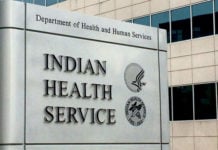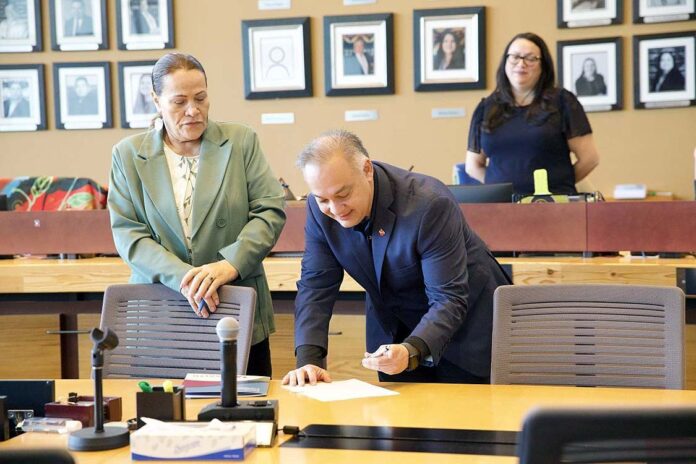OLYMPIA, WA – The Washington State Department of Health (DOH) and the Tulalip Tribes made history by signing the first data sharing agreement of its kind in the state. The agreement promotes tribal data sovereignty, which refers to the inherent right for tribes, as public health authorities, to have access to data to best serve their communities. For Tulalip, this means their tribe will have greater access to and ownership of their public health data, including how it is collected, stored, and used in DOH datasets.
DOH collects many types of public health data from sources such as laboratories that test for diseases, healthcare records, birth records, health surveys, environmental data, and more. Collecting this data and delivering accurate information is critical to protecting people’s health. Tribes and local health jurisdictions use this data to alert their local communities to a variety of emerging health threats. This data sharing agreement provides the tribe with more direct governance.
The Tulalip Tribes will gain access to several DOH data systems over time, prioritized according to the tribe’s needs. The first being the Washington Disease Reporting System, where providers and labs report diseases and notifiable conditions such as COVID-19, lead levels in children, and Mpox, among many others. The data sharing agreement is flexible enough to allow for additional access to datasets as the tribe’s needs evolve.
The data sharing agreement opens new opportunities for Tulalip to lead outbreak investigations affecting tribal members and better assess the well-being of their community to develop health priorities. To protect Tulalip’s data, the agreement includes details of how Tulalip’s data is being used with the tribe’s consent.
“For years, paternalism towards Indigenous people has locked tribes out of information gathered from us and about us,” said Tulalip Chairwoman Teri Gobin. “We appreciate the Data Sovereignty Principles developed through the Governor’s Indian Health Commission and the American Indian Health Commission. Transparency and informed consent are vital to collaboration. Tribes have an inherent right to own data about us and determine how the data is collected, shared, and used. This formal agreement is a wonderful first step towards a respectful relationship that will benefit both public health agencies and the well-being of tribal communities.”
Achieving a formal data sharing agreement between Tulalip and DOH is the culmination of hard work, collaboration, and consensus building.
“Tulalip and DOH celebrate this milestone together while recognizing that much work remains,” said Kristin Peterson, DOH Chief of Policy. “This data sharing agreement represents a further expression of the state’s commitment to its government-to-government relationship with tribes and reinforces the belief that tribes must have access and ownership of their public health data to protect their communities.”
DOH and Tulalip completed the consultation in accordance with Chapter 43.376 RCW, the Washington State Centennial Accord of 1989, and DOH Consultation and Collaboration Procedure. DOH extends its gratitude and recognition to the Tulalip Board of Directors, Chairwoman Gobin, Summer Hammons, and the DOH Office of Tribal Public Health and Relations directed by Candice Wilson.


















































